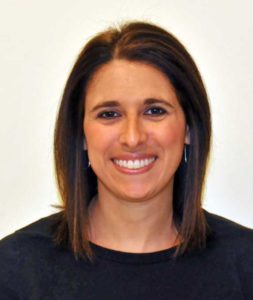COVID-19 and Public Health
COVID-19 and Public Health
Jamie Sokol ’05, MPH, is helping to prevent and mitigate the spread of the virus

Jamie Sokol ’05, MPH
When the pandemic hit, Jamie Sokol ’05, MPH, was pulled in early. As the manager for workforce development at the Allegheny County Health Department in southwestern Pennsylvania, she and her colleagues had to implement the county’s public health emergency response plan, and they had to do it fast. That meant shutting down some of the health department’s programs, scaling back others, and building up new ones for an area that serves 1.2 million people, including the city of Pittsburgh.
“A crisis like this underscores the need for strong public health funding,” Sokol says. “People have always looked to their health departments for population-based services, such as health promotion and education, policy development, regulatory enforcement, and in some jurisdictions, direct clinical care. COVID-19 certainly amplifies the need for all of these vital services.”
Many of the staff’s day-to-day work has shifted, too. “We have great people here rolling up their sleeves and taking on whatever role that’s needed, even if it means learning new skills and putting in long hours,” she adds. “The community has stepped up, too.”
For instance, dozens of medical and public health students from local universities have joined the health department’s response team. “They’ve been helping us and doing work that has complemented their academic coursework,” she says, noting that part of her’s job involves overseeing all student experiential learning opportunities at the health department.
Local Girl Scouts have pitched in, too. “One troop donated leftover cookies to the staff—such a kind gesture for people here who’ve been working 12 hour days,” adds Sokol. “It’s nice for our team of dedicated professionals to be remembered and recognized. Local health departments are often overlooked as a major piece of the COVID-19 response, because we operate differently than the healthcare system.”
Sokol has always been fascinated by the influence of human behavior and society on disease. It’s what drew her to become a health, behavior, and society major at the University of Rochester and it’s fueled her career in public health.
“I firmly believe that lack of infirmity does not equal wellness,” she says. “That’s why public health programs are so important. We are concerned with not just mitigating disease—which is vitally important—but also on understanding the social context of disease and how to prevent people from even getting sick in the first place.”
Public health programs are strongest, she says, when they take a collaborative, multidisciplinary approach, which she first learned at Rochester. “We must have everyone around the table—the lawyers, accountants, epidemiologists, public policy experts, and others—to address this crisis as well as any public health issue,” Sokol adds. “This is how complex problems get solved.”
At the end of each day, when Sokol has a moment to reflect, she wonders about what will happen when restrictions ease and life returns to a new normal.
“I think about the long-term ramifications of the pandemic,” she says. “Public health services have been scaled back across the country, but we still need them. For instance, we need restaurant and housing inspections, immunization and health clinics, environmental health programs, and much more. My hope is that this crisis will highlight the importance of public health and what needs to be done maintain it.”
We all can do something to help. Consider donating supplies or food, giving blood (URMC is facing a critical shortage), making a gift to our URMC COVID-19 emergency fund, and supporting our student emergency fund.
— Kristine Thompson, May 2020


